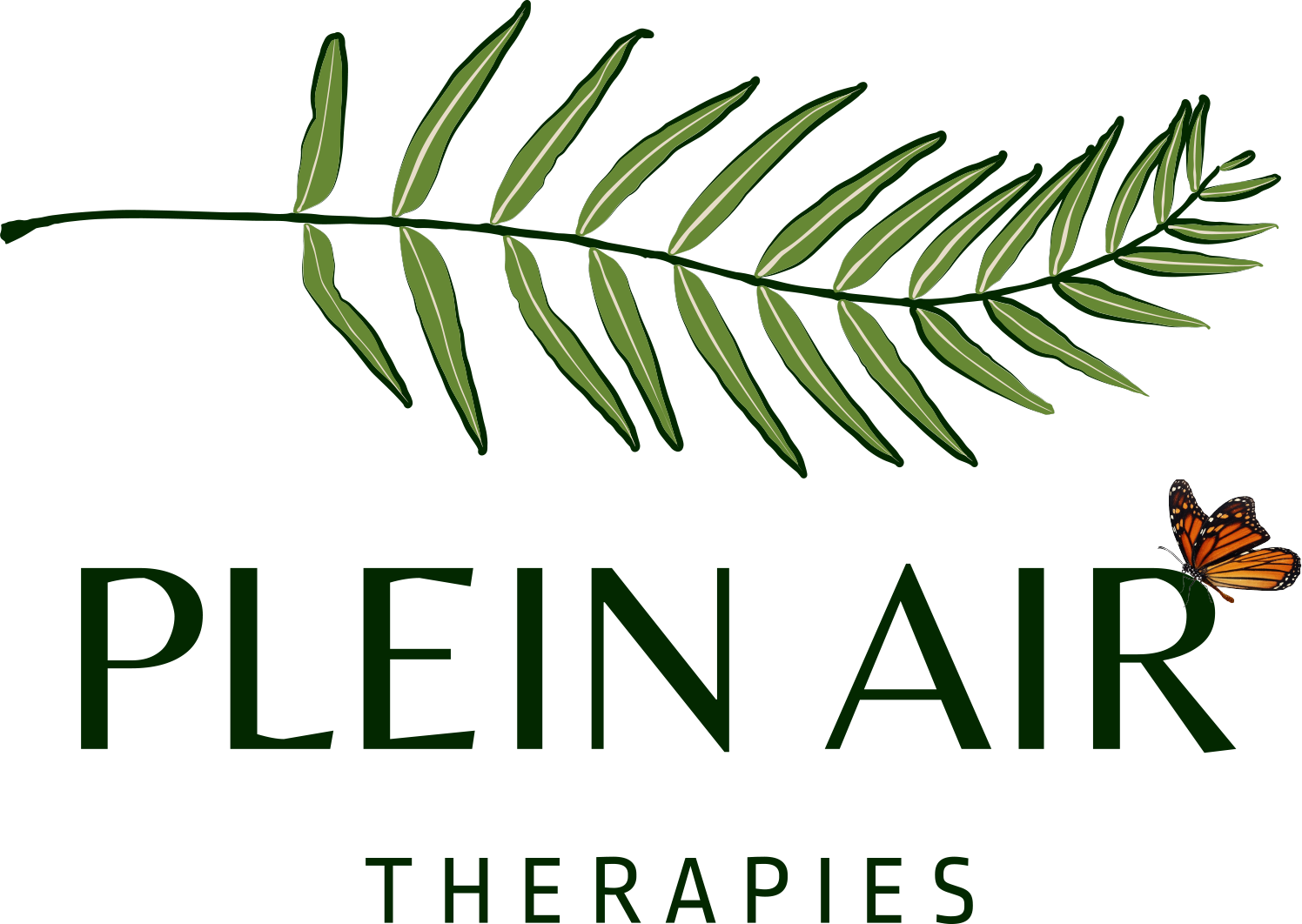“Why Don’t You Just Leave?”
As a survivor of domestic violence, I can remember how it felt to hear those words. Even more isolated and alone. It was obvious to me that most people around me didn’t really understand the complexities of my situation.
Now as a therapist at Plein Air Therapies, my own lived experience of domestic violence informs and guides me as I work with people in the development of a practical exit strategy to support them in their transition from a life that feels emotionally threadbare to a life aimed at restoring a sense of empowerment, safety and connection.
One question often asked when working on a safe exit plan is “what is going to happen to my cat/dog?”. Long term domestic violence can seriously compromise a person’s ability to self-regulate their nervous system and the result can be very harmful to health and wellbeing. A dog or cat may become so much more to a person enduring domestic violence than just a pet, as the animal might be the means for abused family members to settle their nervous system and regain a sense of safety and connection. The bond between the person and pet can be central within the life of the DV victim.
There has been growing research into the links between pet abuse and family violence. Perpetrators often abuse pets as well as humans within the home. Pet abuse, or the threat of pet abuse, can be used as a means to control the humans within the home. Pets are often injured or killed when living in human domestic violence situations.
Findings from DVNSW Survey of DFV and community workers (July 2020) found that barriers to accessing support [for clients with animals experiencing domestic violence] are;
o Lack of animal-friendly rental accommodation
o Lack of animal-friendly transitional and long-term accommodation
o Lack of funds to pay for interim solutions such as boarding for animals
o Fear of separation from the animals (for clients or their children)
o Logistical reasons (i.e., being unable to transport animals)
So, you can see why leaving behind a pet can stop a person from taking action to leave. This is where the SAFE House 4 Pets Program and Pets of The Homeless step up. Part of the Second Chance Animal Rescue (SCAR) Service Outreach Program, the SAFE House 4 Pets Program will care for your cat or dog while you leave a domestic violence situation and re-establish a secure living circumstance. It isn’t a long-term solution to housing of the pet, but it gives domestic violence victims/survivors peace of mind while they engage in other supports such as Plein Air Therapies to make arrangements for the future.
The SH4P program requires the pet to be fully vaccinated, and pass a behavior and health check at their associated Vet Service. If you require assistance in funding the vet care costs in order to meet the pre-requisites for access to the Safe House 4 Pets program, it’s suggested that you seek support from The Orange Door, which is a Family Safety Victoria network of Support and Safety Hubs being rolled out state wide. The Orange Door assist in meeting the costs of the associated expenses of placing your pet in the SH4P program. The Safe House 4 Pets program is conscious of privacy, safety and security, never taking pictures of pets in care.
If you you, or you think you know someone who could use a helping hand to manage an unhappy home situation, Plein Air Therapies is a non-judgmental, safe space where you can receive skilled support and guidance to remember what it feels like to hold yourself in high regard with self-compassion, kindness, dignity and respect.
If you are in a domestic violence situation and are seeking assistance, call 1800 RESPECT (1800 737 732) or 1800 800 098 or chat online via the web https://www.1800respect.org.au.
In an emergency, or if you are in danger, call 000.
